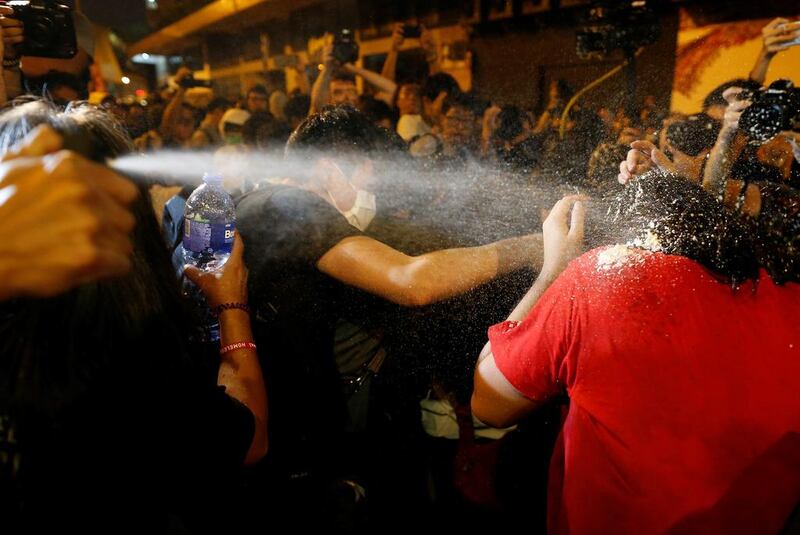HONG KONG // Police fired pepper spray at protesters in Hong Kong on Sunday as hundreds of activists rallied against the Chinese government’s impending legal intervention to curb a fledgling independence movement.
Minor scuffles broke out as some protesters hurled bottles at police outside the office of Beijing’s representative in the territory. At least one person was arrested.
A ruling on Monday from a top committee of China’s parliament, the National People’s Congress, is expected to effectively bar the recently elected legislators Yau Wai-ching, 25, and Baggio Leung, 30, from taking office.
The pair set off a fierce debate when they pledged allegiance to the “Hong Kong nation” and displayed a “Hong Kong is not China” banner during a swearing-in ceremony for the city’s legislative council in October.
Their oaths were not accepted and their right to re-take them is being challenged in the local courts by the Hong Kong government.
The congress’s standing committee is not waiting for the judgment, however. It has discussed invoking its rarely used power to interpret Hong Kong’s constitution, the Basic Law, to stop them taking office.
Chinese legislators quoted on TV over the weekend described the pair as a threat to China’s sovereignty and security.
The situation is seen by many across Hong Kong’s legal and political elites as one of the biggest tests the global financial hub has faced since its handover to China, with some fearing its vaunted rule of law is under threat.
Britain returned Hong Kong to Chinese control in 1997 under a “one country, two systems” formula that gave the territory wide-ranging autonomy, including judicial freedom, under the Basic Law.
Sunday’s protests began with thousands of people marching from Wan Chai to the city’s central financial district, with several hundred pressing on to Beijing’s liaison office.
Organisers put the numbers at 11,000; police said 8,000 turned out.
* Reuters





